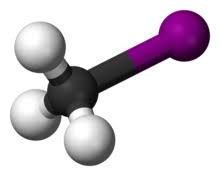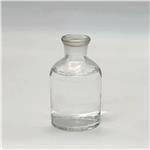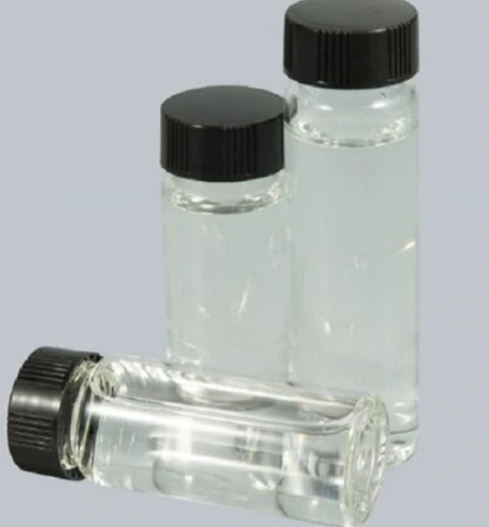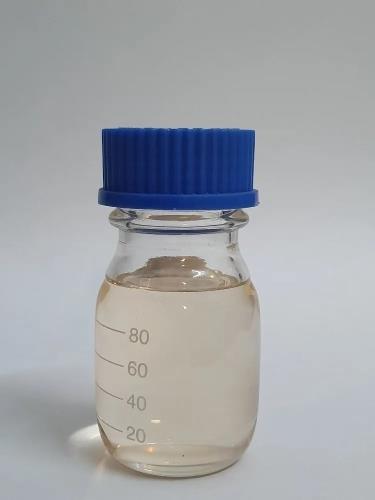Iodomethane-Hazard and Toxicity
Description
Iodomethane is also commonly called methyl iodide. It is a volatile liquid related to methane by replacement of hydrogen. Iodomethane is miscible with common organic solvents. It is colourless, although upon exposure to light, samples develop a purplish tinge. Iodomethane (methyl iodide) is widely used in organic synthesis to deliver a methyl group, via the transformation called methylation.

Toxicity Data
LDLO oral (rat) 150 mg/kg
LDLO skin (rat) 800 mg/kg
LC50 inhal (rat) 1300 mg/m3 (4 h)
PEL (OSHA) 5 ppm(28 mg/m3)—skin
TLV-TWA (ACGIH) 2 ppm(11 mg/m3)—skin
Major Hazards
Moderately toxic, volatile substance readily absorbed through skin. The acute oral toxicity and inhalation toxicity of methyl iodide is moderate in test animals. It is more toxic than methyl bromide.The toxic symptoms are nausea, vomiting,diarrhea, ataxia, drowsiness, slurred speech,visual disturbances, and tremor. Pulmonaryedema, coma, and death can result from massive exposures. The vapors are an irritantto the eyes.
Repeated exposures may causedepression of the central nervous system.Prolonged contact with the liquid can causeskin burn and dermatitis. The reported valuesof LD50, as well as LC50, for this compoundas published in the literature show variations.The fatal doses by inhalation and ingestionare 900 ppm/h in mice and 150 mg/kg inrats, respectively.
Toxicity
The acute toxicity of methyl iodide is moderate by ingestion, inhalation, and skin contact. This substance is readily absorbed through the skin and may cause systemic toxicity as a result. Methyl iodide is moderately irritating upon contact with the skin and eyes. Methyl iodide is an acute neurotoxin.
Symptoms of exposure (which may be delayed for several hours) can include nausea, vomiting, diarrhea, drowsiness, slurred speech, visual disturbances, and tremor. Massive overexposure may cause pulmonary edema, convulsions, coma, and death. Chronic exposure to methyl iodide vapor may cause neurotoxic effects such as dizziness, drowsiness, and blurred vision. There is limited evidence for the carcinogenicity of methyl iodide to experimental animals; it is not classified as an OSHA "select carcinogen."
Flammability and Explosibility
Noncombustible. High vapor pressure may cause containers to burst at elevated temperatures.
Reactivity and Incompatibility
Methyl iodide may react vigorously with alkali metals and strong oxidizing agents.
Accidents
In the event of skin contact, immediately wash with soap and water and remove contaminated clothing. In case of eye contact, promptly wash with copious amounts of water for 15 min (lifting upper and lower lids occasionally) and obtain medical attention. If methyl iodide is ingested, obtain medical attention immediately.
If large amounts of this compound are inhaled, move the person to fresh air and seek medical attention at once. In the event of a spill, soak up methyl iodide with a spill pillow or absorbent material, place in an appropriate container, and dispose of properly. Respiratory protection may be necessary in the event of a large spill or release in a confined area.
Disposal
Excess methyl iodide and waste material containing this substance should be placed in an appropriate container, clearly labeled, and handled according to your institution's waste disposal guidelines.
You may like
Related articles And Qustion
Lastest Price from Iodomethane manufacturers

US $1.00/kg2025-04-21
- CAS:
- 74-88-4
- Min. Order:
- 1kg
- Purity:
- 99%
- Supply Ability:
- 10 mt

US $0.00-0.00/kg2025-04-21
- CAS:
- 74-88-4
- Min. Order:
- 1kg
- Purity:
- 99.99%
- Supply Ability:
- 20 tons




